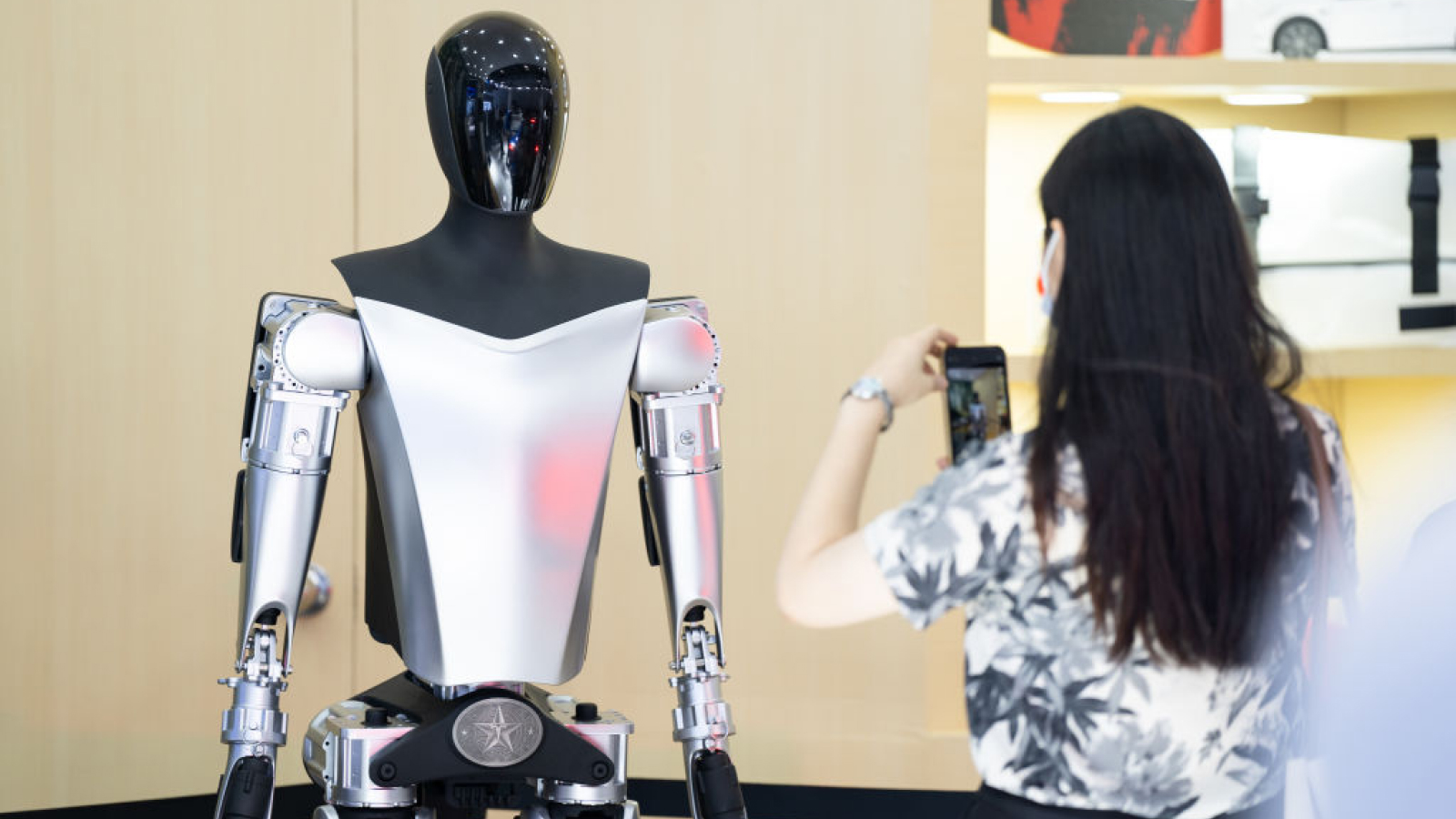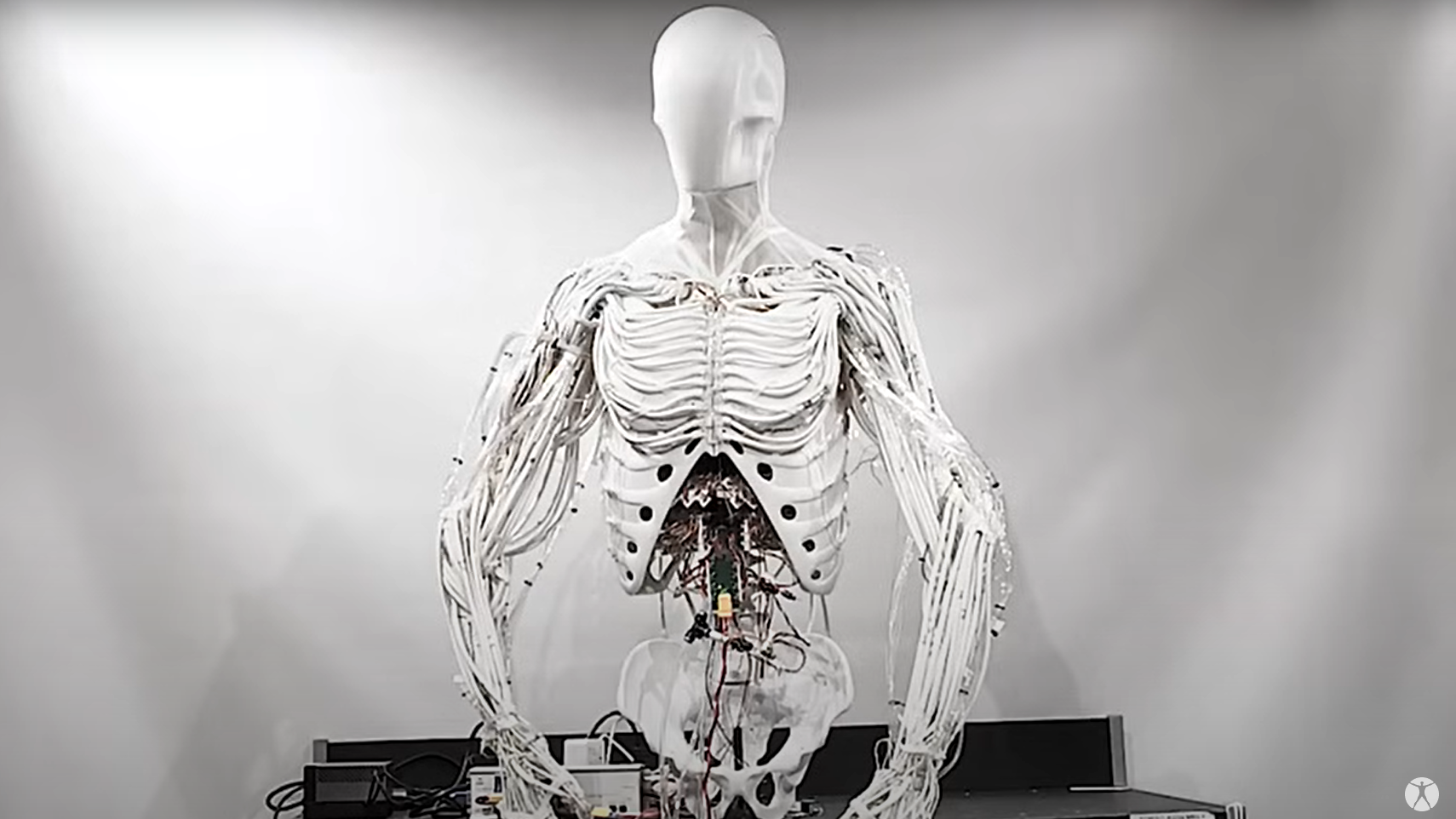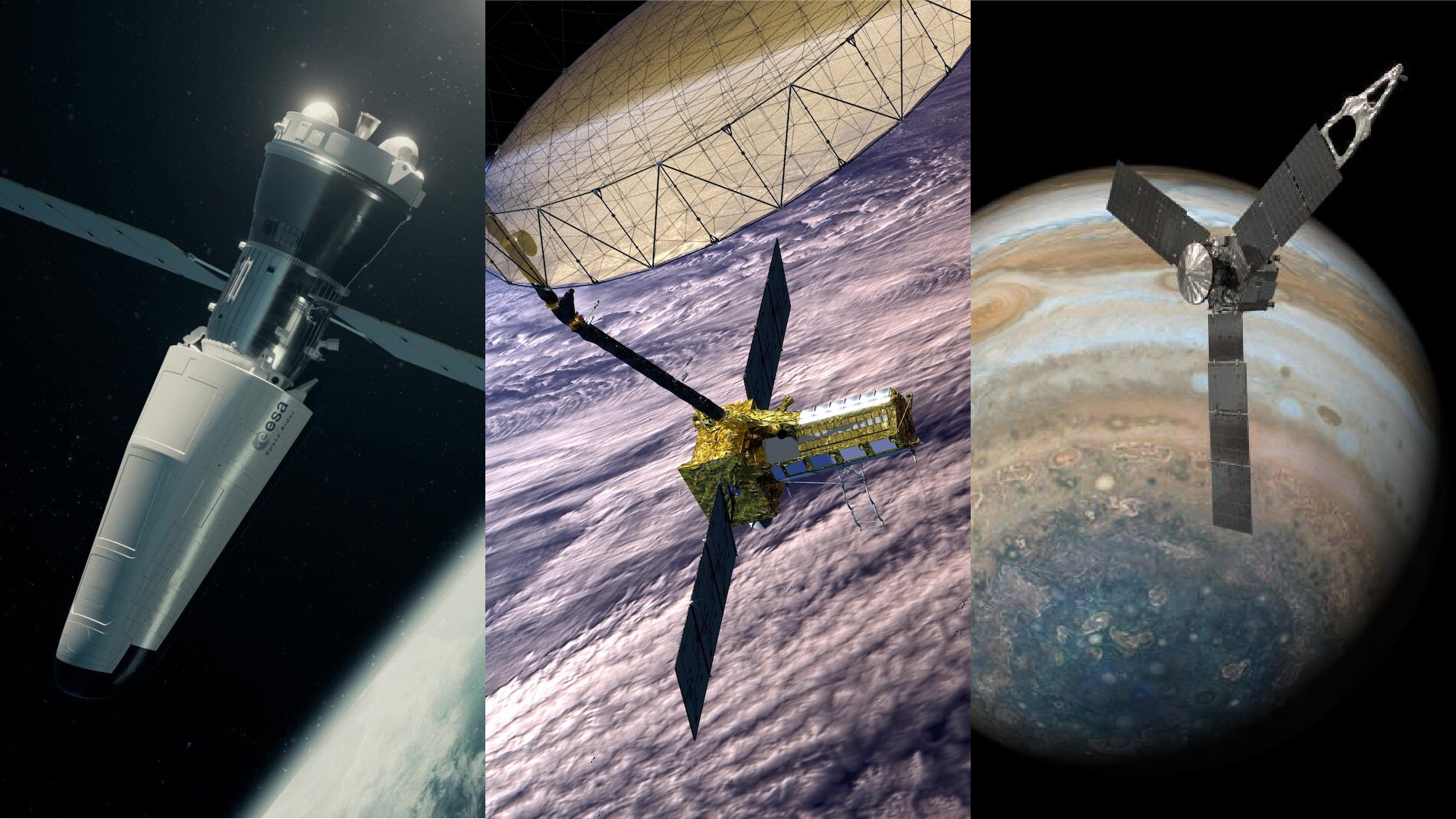The Best Educational Toys for Middle-School Students
For curious kids
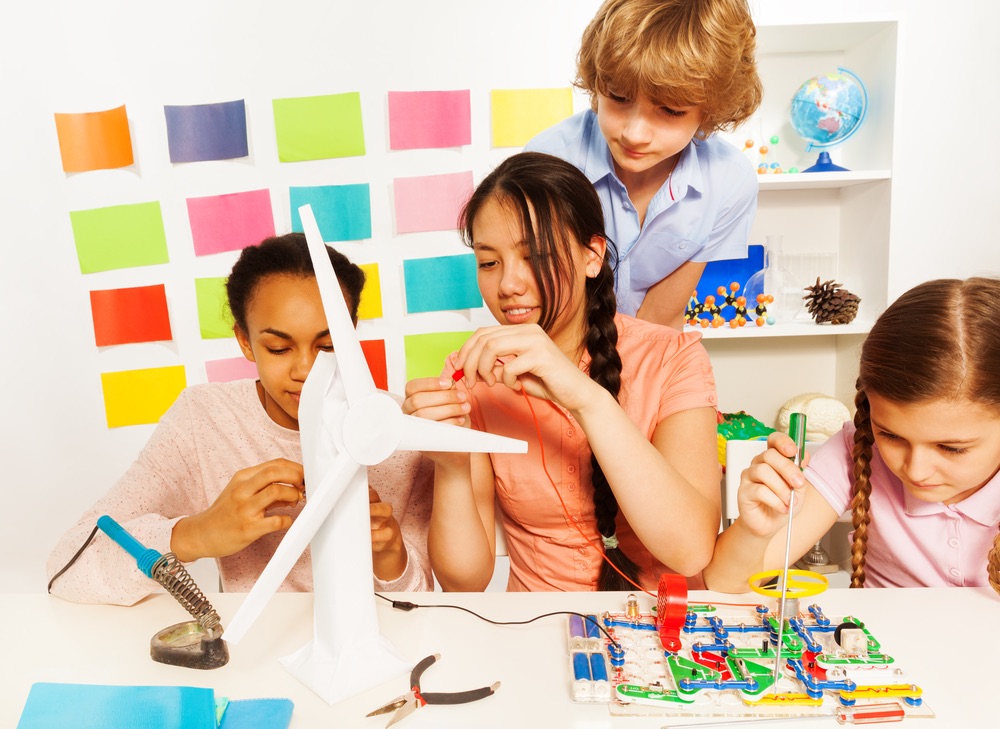
As tweens and young teens gain independence, they can take on science and engineering projects that require more expertise. These kits and sets offer challenges and new opportunities to learn. Many interact with apps or smart devices. Let's get started …
Lightsaber Crystal Growing Lab
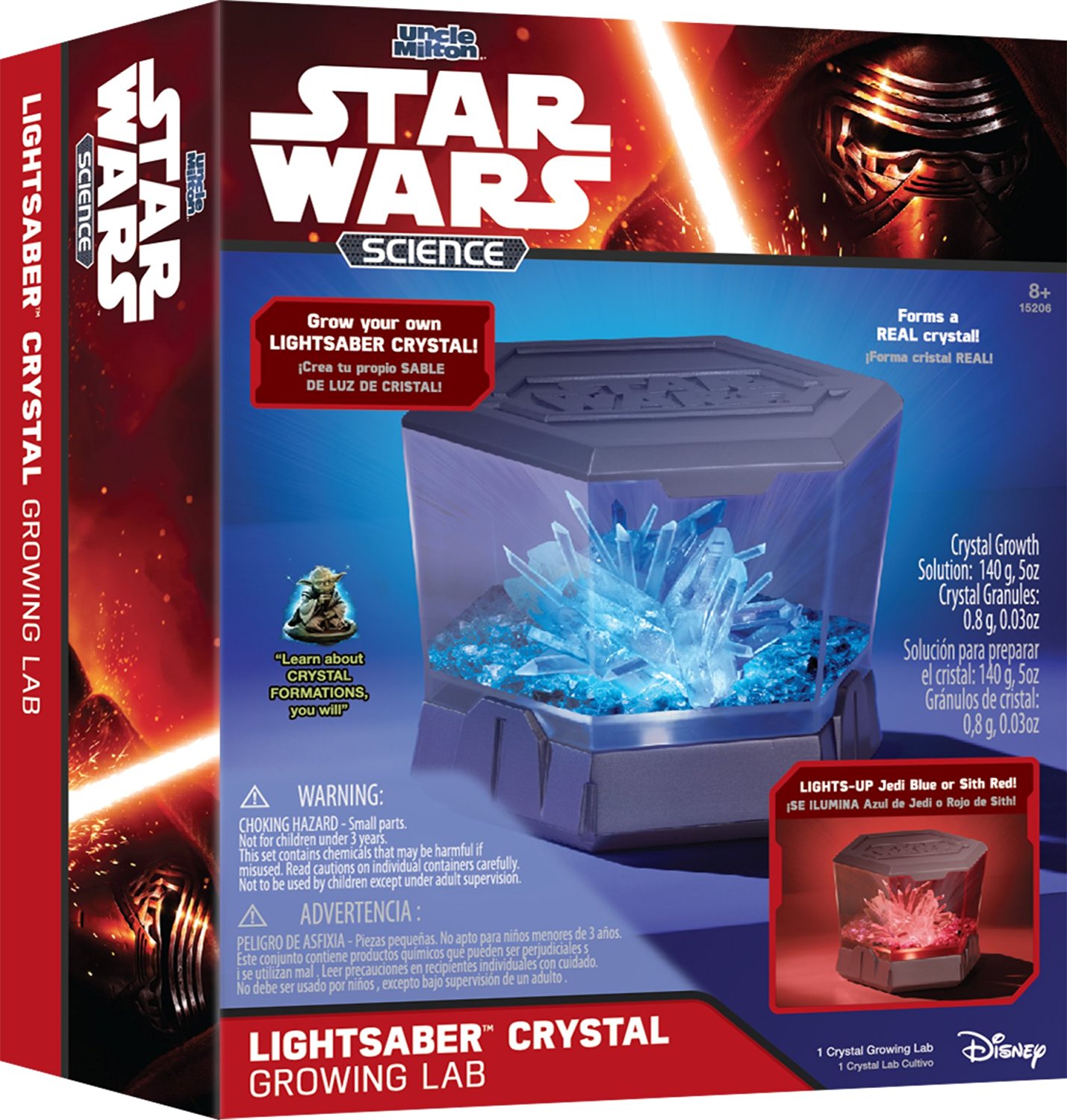
A Star Wars tie-in brings science to young Jedis-to-be. The Star Wars Lightsaber Crystal Growing Lab includes a packet of liquid starter to grow salt crystals in a plastic tank. After the crystals form (about a week), the tank becomes a display case with lights to bathe the creations in blue or red.
(Recommended ages: 8 and up)
Cost: $19.99
Terraforming Mars
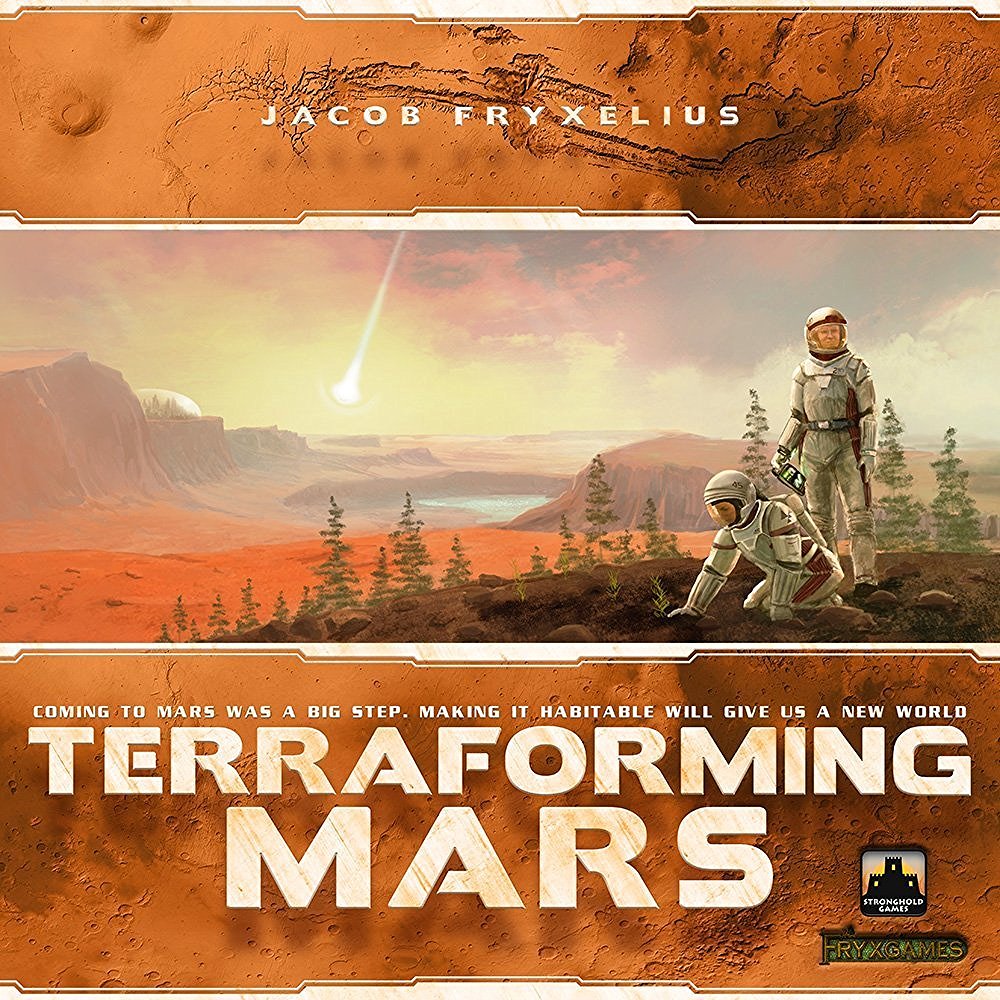
The goal of the Terraforming Mars board game is to make the Red Planet fit for human habitation. Players, representing a corporation sent to the planet to warm it, create oceans and build up the oxygen levels, compete for victory points awarded for such accomplishments as building cities or introducing animals. The goals are based on real science — for example, players must establish greenhouse gas production to warm the planet.
(Recommended ages: 12 and up)
Cost: $69.99
Carnivorous Creatures Light Cube
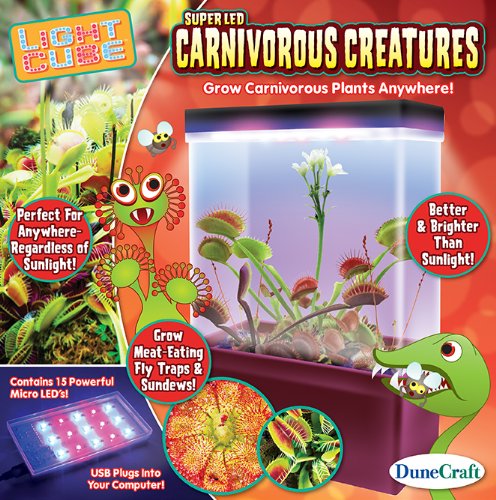
The budding botanist on your list can grow their own flycatchers with the Carnivorous Creatures Light Cube. This terrarium (about 9 inches long and 9 inches high) comes with seeds to grow carnivorous Venus flytraps (Dionaea muscipula) and sundews (Drosera intermedia, Drosera filiformis, and Drosera rotundifolia). Red and blue micro-LED lights nurture the plants' growth in dim rooms.
(Recommended ages: 14 and up)
Price: $29.99
Lego Technic: Hydroplane Racer
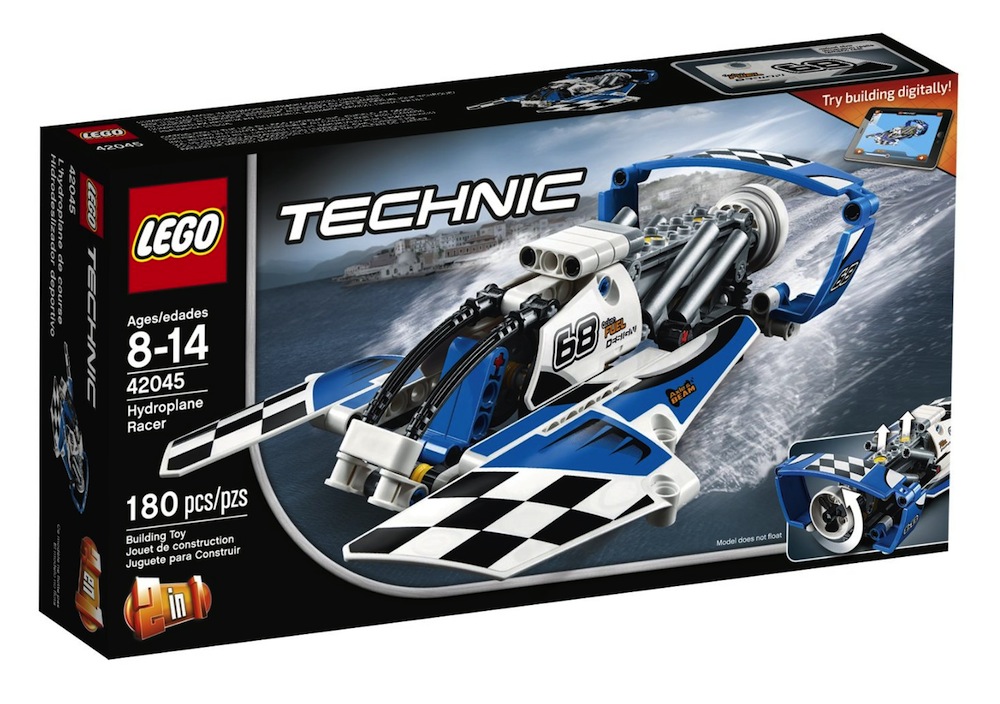
If your engineering-savvy student has a need for speed, the Lego Technic Hydroplane Racer kit may do the trick. Kids can build an aerodynamic, 2-in-1 model (it can rebuild into a race boat), complete with a large cockpit, propellers and engine pistons. The building process is designed to be immersive, and students can even consult an interactive 3D digital app as they work. (Recommended ages: 8 to 14 years)
Price: $17.99
DIY Cell Phone Kit
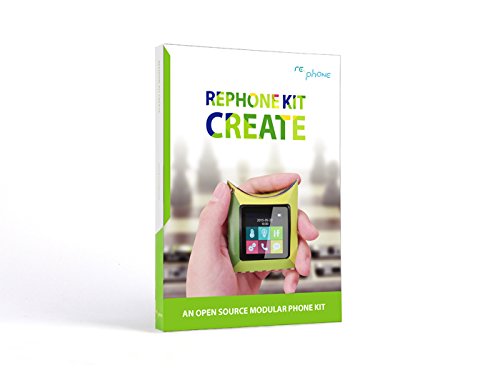
Kid been begging you for the latest iPhone? Tell them to hack their own. The RePhone DIY Cell Phone Kit will teach young teens about the technology behind their beloved mobile devices. It's an open-source modular phone kit that comes with a core module, an audio module, a touchscreen, battery and two paper cases. All it takes is a SIM card to turn this kit into a real working phone. There's no soldering required, making this a good project for even young geeks.
(Recommended ages: 12 and up)
Levitating Construction Challenge
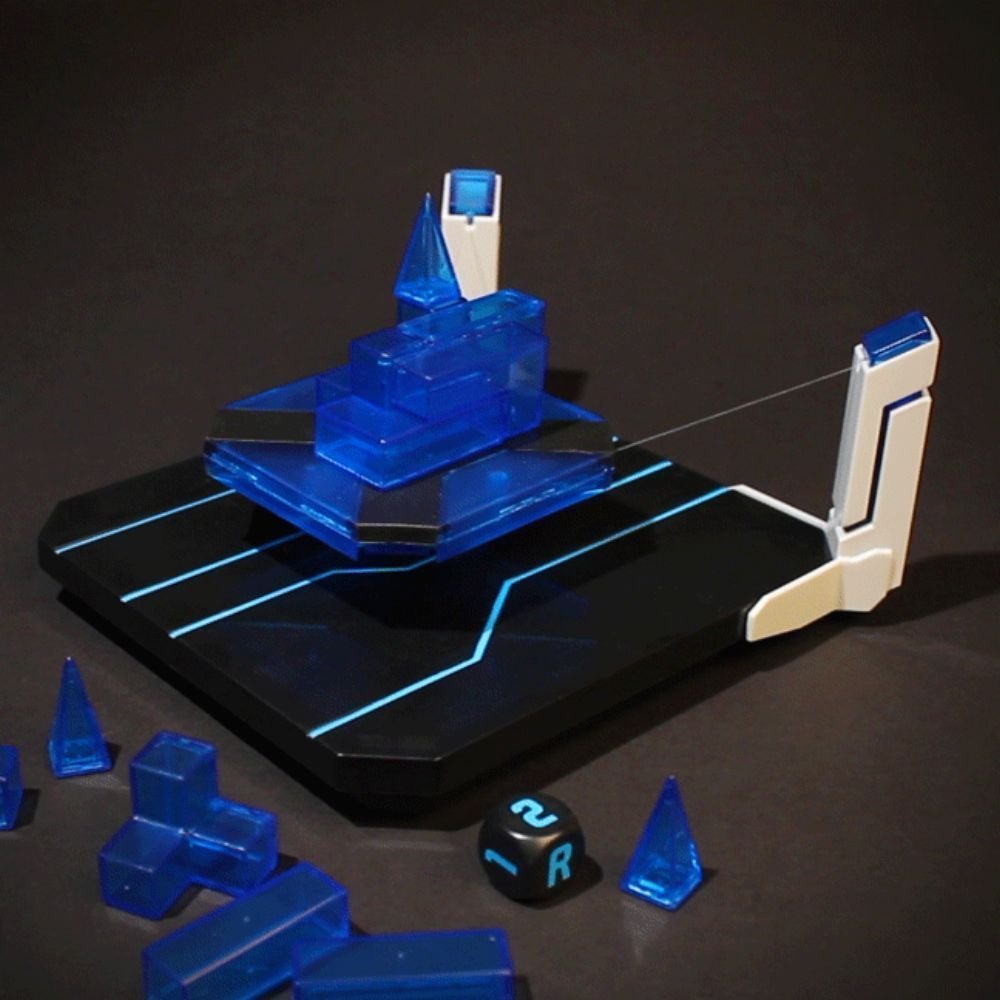
An original created by ThinkGeek, Hoverkraft is a game of balance, much like Jenga, but with a high-tech twist. Players must build structures on a levitating platform held up by magnetic repulsion. The platform wobbles and wiggles, adding to the challenge of arranging the 24 plastic blocks in as fanciful a structure as the players can manage before they all come tumbling down.
(Recommended ages: 8 and up)
Price: $29.99
OWI: 14-in-1 Solar Robot
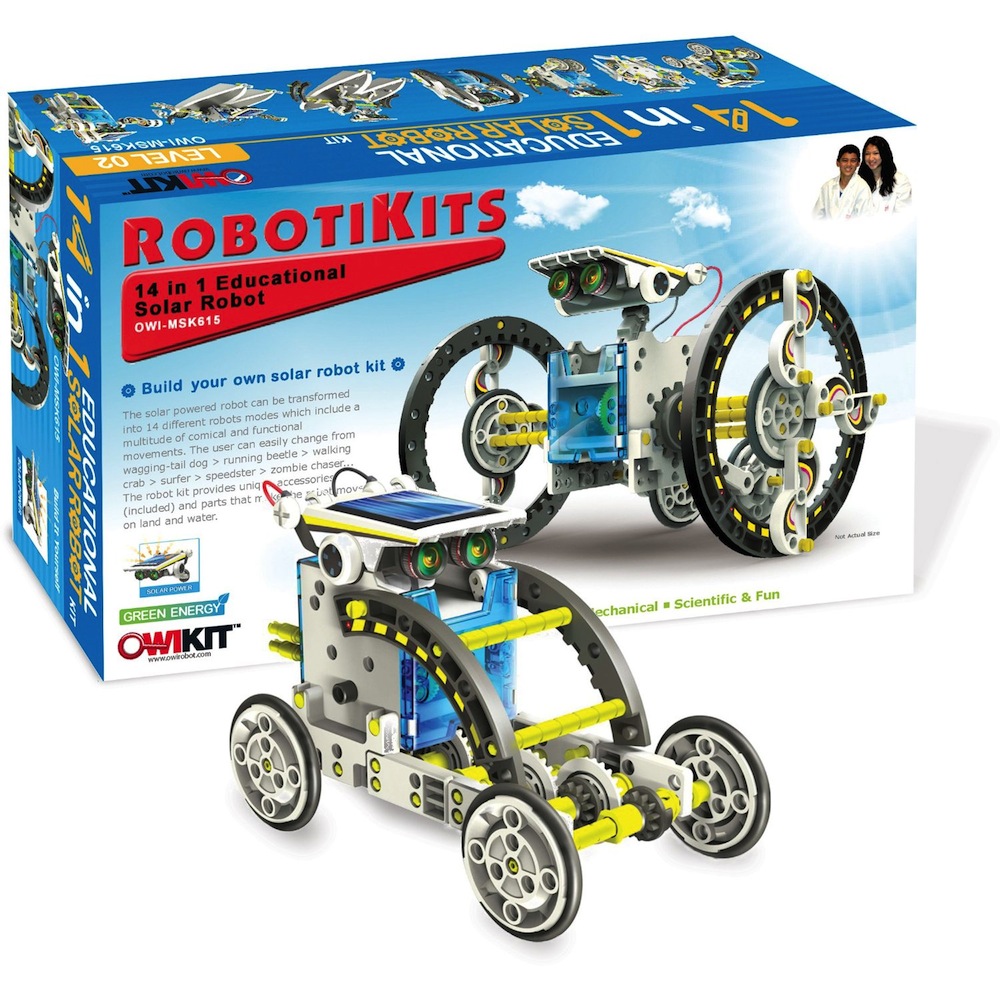
Kids can experience 14 different robotic modes with this solar-powered bot, including a speedster, "zombie chaser" and surfer. The robot can move on land and water, and there are two skill levels, which means more experienced builders will still be challenged. Students can learn about alternative energy sources as they build dog-bots, beetle-bots and many more. Transparent housings (showing all the nuts, bolts and gears inside) and the ability to adjust the polarity on the solar panel make this set fun and educaitonal. And the best part? The robot is powered by the sun, so you don't have to stock up on batteries. (Recommended ages: 8 to 15 years)
Price: $24.99
Leonardo Da Vinci Wooden Invention Kits
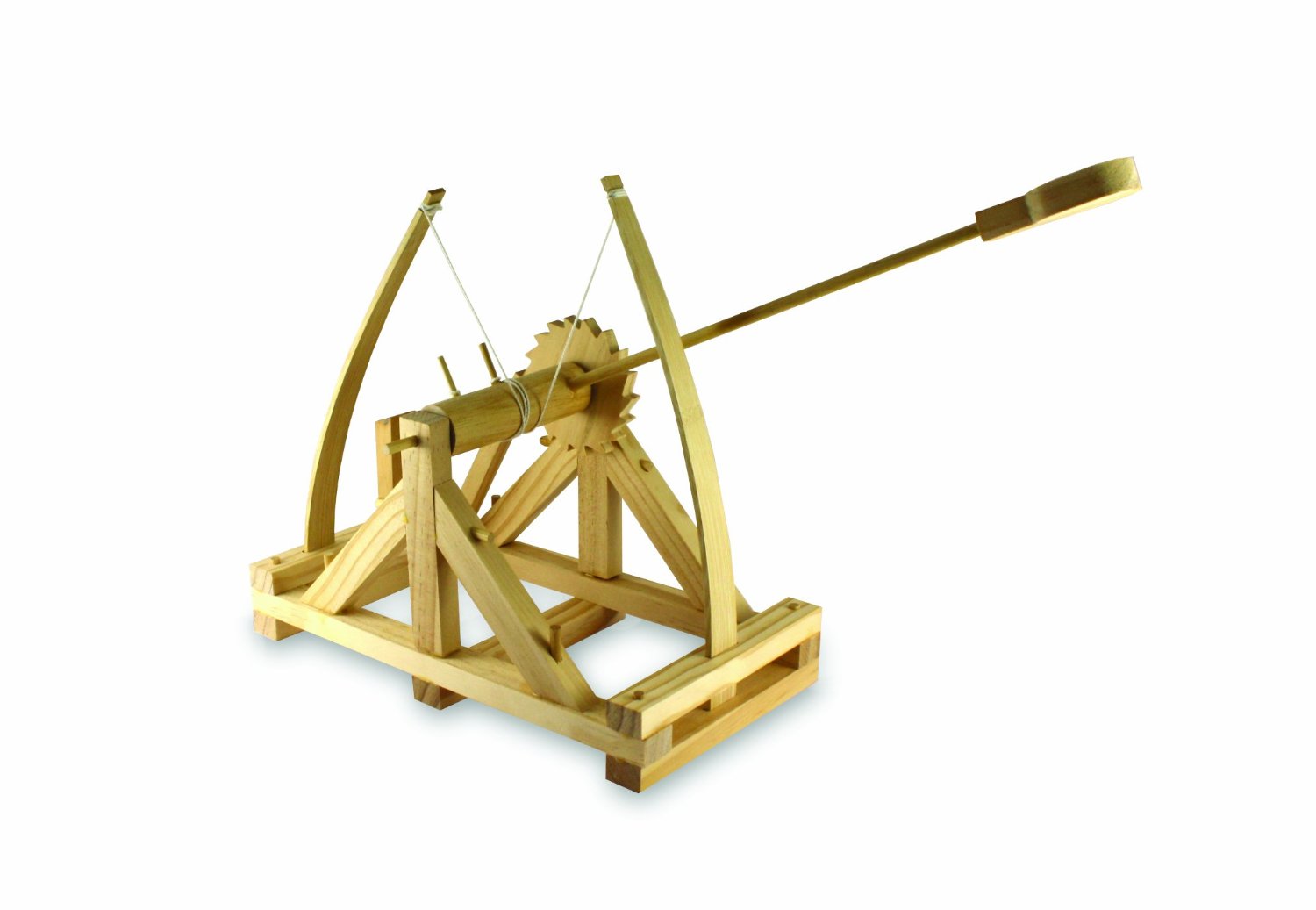
Maybe the maker on your list is less enamored with computers and more with history. In that case, the Leonardo Da Vinci Wooden Invention Trebuchet Kit may be just the ticket. This mini-medieval weapon comes ready to build, with pre-cut, pre-drilled pieces. Once assembled, it can throw clay balls up to 20 feet (6 meters). Kids will learn about potential energy, simple machines, rotational acceleration and other basic physics concepts.
(Recommended ages: 8 and up)
Cost: $24.99
Compound Microscope
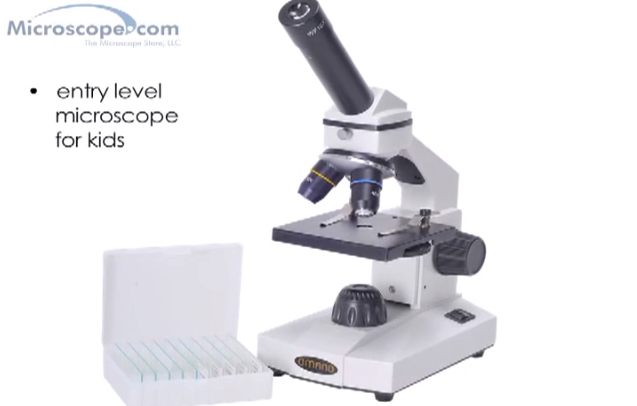
Peer into the microscopic world with the Omano OM117L monocular microscope and the OptixCam Summit Series SK2 1.3MP digital camera. Great for home or classroom explorations, the microscope helps kids get an eyeful of solid specimens, such as insects, coins and plants. Users can also look at prepared slides or even perform dissections at magnifications of 40x, 100x and 400x. The microscope also comes with prepared and blank slides, a microtome, dyes, test tubes, a manual and cleaning tools. (Recommended ages: 9+ years)
Price: $89.95
MEL Chemistry
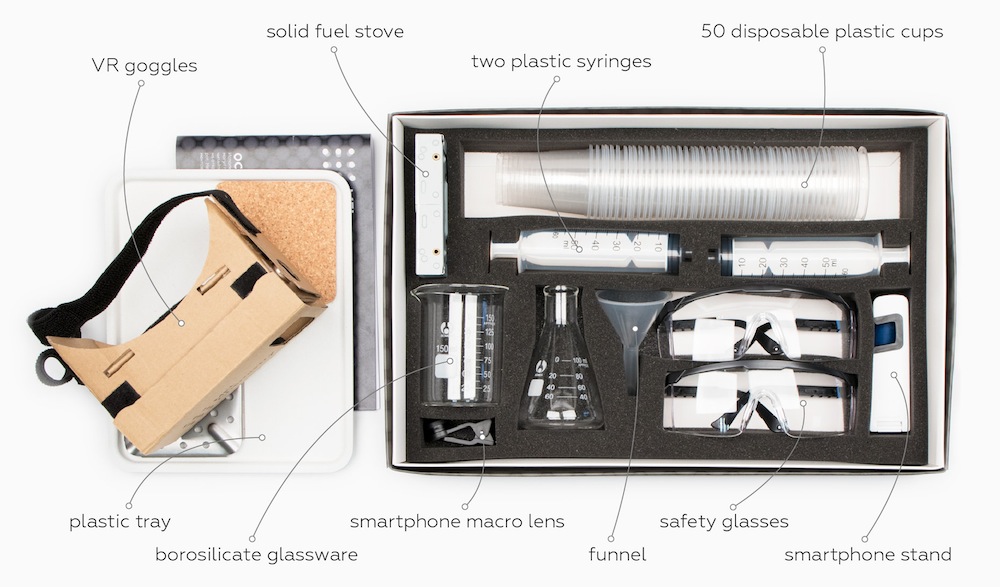
Got an insatiable scientist on your hands? Then try MEL Chemistry, a next-generation series of chemistry experiments that arrive in the mail every month. At the start of each month, subscribers will receive three new chemistry sets with intriguing experiments, such as how to make a burning sugar snake. These hands-on challenges come with accompanying lessons that include learning with a smart-device application (compatible with iPads, iPhones and Android smartphones or tablets). MEL Chemistry also uses Google Cardboard, 3D graphics, macro photo and video as a way to turn each investigation into a game. (Recommended ages 12+ years)
Price: A $73.80 subscription gets you the starter kit and two experiments. Monthly payment for three experiment sets is $35.85; it includes shipping. Buy now on MEL Science's website.
Sign up for the Live Science daily newsletter now
Get the world’s most fascinating discoveries delivered straight to your inbox.

Stephanie Pappas is a contributing writer for Live Science, covering topics ranging from geoscience to archaeology to the human brain and behavior. She was previously a senior writer for Live Science but is now a freelancer based in Denver, Colorado, and regularly contributes to Scientific American and The Monitor, the monthly magazine of the American Psychological Association. Stephanie received a bachelor's degree in psychology from the University of South Carolina and a graduate certificate in science communication from the University of California, Santa Cruz.

